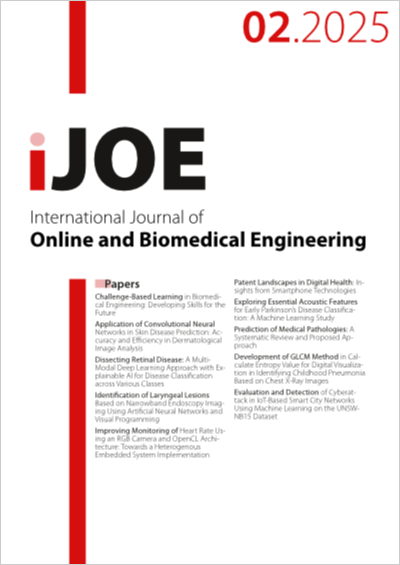Challenge-Based Learning in Biomedical Engineering
Developing Skills for the Future
DOI:
https://doi.org/10.3991/ijoe.v21i02.51795Keywords:
Educational Innovation, Higher Education, Biomechanics, Tec21, Challenge-based learning, SustainabilityAbstract
One of the primary objectives of higher education (HE) is to produce specialized human resources with the necessary competencies for the challenges encountered in our professional lives and our complex environment. One form of experiential education for biomedical engineering students is to expose them to real situations so that, based on acquired knowledge, they develop highlevel disciplinary competencies that prepare them for a future job with greater expectations. This report analyzes the use of teaching strategies such as challenge-based learning (CBL) for the development of technical skills through the design and manufacture of a walking aid device, the implementation of effective methods for the development of medical devices, and the identification of sustainability in engineering. A tournament skills event evaluated the results by highlighting specific solution proposal points. This study is an illustrative case that provides significant evidence of the effectiveness of CBL and can serve as a model for pedagogically sensitive evaluation of the engineering classroom by integrating blended learning schemes using gamification techniques.
Downloads
Published
How to Cite
Issue
Section
License
Copyright (c) 2024 Dr. Anai Alicia Valencia-Lazcano, Dr. Rubén Fuentes-Álvarez, Jorge Membrillo-Hernández, Dr. Marco Cruz-Sandoval, Mr. Juan C. Miranda-Hernández

This work is licensed under a Creative Commons Attribution 4.0 International License.



